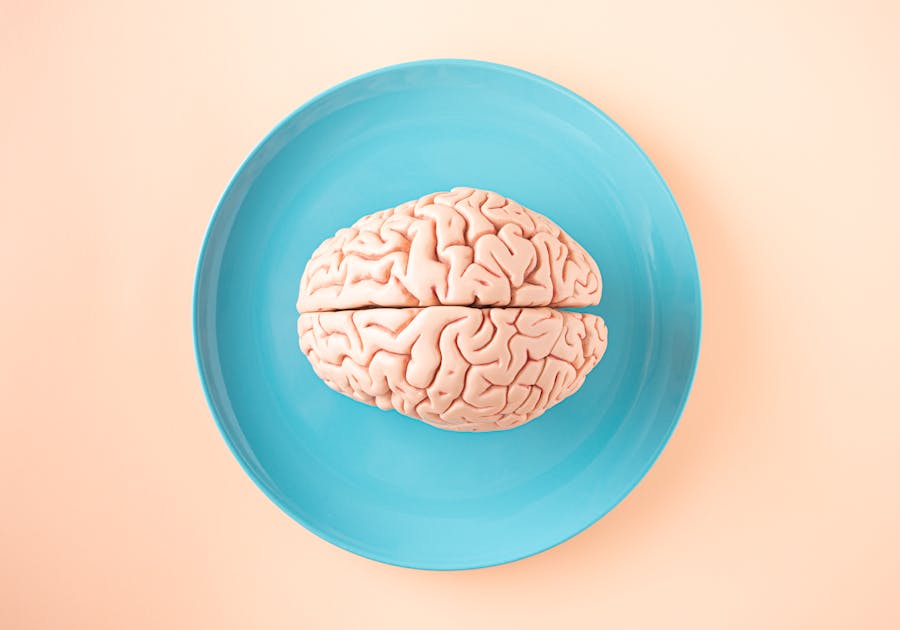
Have you ever walked into a room with a purpose and then totally drew a blank as to why you went in there? Do you write yourself notes– whether it be grocery or to-do lists– because if you don’t, there is a likelihood that you’ll forget what needs to be done? Do you rely on Alexa and your calendar to give you a heads-up about watering a plant or calling a friend on their birthday? Rest assured, these circumstances and habits are common practices of living in today’s fast-paced, busy world. But while you may have accepted that this is just something that happens to most people, you may feel a little worried or discouraged as to why it is getting harder to remember things. Well, blame your brain.
Actually, no, please don’t blame your brain. It’s literally the boss of your body. Without it, you wouldn’t be breathing right now, you wouldn’t comprehend the meaning of this sentence, and you wouldn’t have the ability to maintain your balance (even after a few cocktails!). As much as we depend on Post-It notes and Echo Dots, our brains are the most important assets we have in managing every task in everyday life. You may get frustrated when you have memory lapses, brain farts, or challenges in coordination, but there are proactive and preventative measures you can implement in improving brain vitality and longevity. Certain vitamins and nutrients, that we get through specific foods, can build strength to our brain. . So, grab a pen and a Post-It because you’re going to want to write down a few items to add to your next grocery list. That way, if you lose your shopping list or if the Wi-Fi goes out and your virtual assistant is unavailable, you can refer to your brain’s capabilities.
What does the brain do?
The brain is a complex and multifunctional organ that regulates and coordinates various purposes necessary for daily living and survival. Although the brain may only weigh a slight three pounds, it is a heavily significant part of the body. Different areas of the brain control different functions. The cerebrum is the largest part of the brain and governs cognitive thoughts such as thinking, learning, decision-making, and memory. It also directs your muscles. The cerebellum sits at the back of your head and is the section of the brain that directs balance and regulates motor movement. A small, but extremely important, portion is the brain stem. The stem connects to the spinal cord, which focuses on involuntary bodily movements such as breathing, heart rate, digestion. Additionally, there is an almond-shaped area of the brain called the amygdala. This structure is the area in which emotions, emotional behaviors, and motivation are processed and regulated. Scientists have also discovered that this part of the brain is where certain memories are stored. The brain is integrates and coordinates the body’s activities. It receives chemical and electrical signals from the body and then interprets and transmits particular responses that control processes in the body. In essence, it is a vital organ that controls nearly all facets of human life and function.
Why Brain Health Is So Important
1. Cognitive Function: The brain controls thinking, learning, memory, and decision-making. A healthy brain reinforces that these cognitive processes work effectively.
2. Emotional Regulation: Mental health and emotional well-being are directly related to brain function. A healthy brain helps manage mood, stress, adaptability, and anxiety levels.
3. Physical Health: The brain governs motor functions and coordinates voluntary and involuntary movements. It also regulates vital bodily functions. A healthy brain helps in recovering from injuries or illnesses.
4. Longevity: Cognitive decline and neurological diseases, such as Alzheimer’s and Parkinson’s, are often associated with aging. A healthy brain assists in preventing or prolonging the onset of these conditions.
5. Quality of Life: A healthy brain contributes to overall quality of life, allowing people to fully participate in social, educational, and physical activities.

Nutrients and Vitamins That Improve Brain Health…And The Foods That Have Them
With rising statistics of brain-related medical diseases and issues such as Alzheimer’s, Parkinson’s, and even ADHD, it is becoming extremely important to initiate proactive measures in supporting brain health. When the brain is nurtured with particular nutrients and vitamins there is a better chance of maintaining and enhancing effective brain functionality. A healthy food regimen could also assist in delaying or preventing the onset of cognitive decline exhibited in neurological diseases. Key nutrients and vitamins that are beneficial for boosting brain health are:
1. Omega-3 Fatty Acids
Foods: fatty fishes, such as: salmon, tuna, trout, mackerel, sardines; nuts such as: flaxseeds and walnuts
Benefits: brain function and development
2. Vitamin D
Foods: salmon, canned tuna, mushrooms, milk
Benefits: brain health, with deficiencies linked to cognitive decline
3. Vitamin C (an antioxidant)
Foods: strawberries, oranges, bell peppers, broccoli
Benefits: brain health and brain cells from damage
4. Folate (Vitamin B9)
Foods: broccoli, spinach, kale, beans, lentils, chickpeas, and fortified grains.
Benefits: brain function and mental health
5. Vitamin B12
Foods: beef liver, clams, salmon, red meats
Benefits: maintaining healthy nerve cells and producing DNA
6. Vitamin E (an antioxidant)
Foods: avocado, almonds, sunflower seeds, red sweet peppers, spinach, broccoli
Benefits: protects brain cells from oxidative stress (in other words, protects harmful molecules from attacking brain cells)
7. Antioxidants (besides Vitamins C and E)
Foods: blueberries, blackberries, turmeric, dark chocolate, green tea
Benefits: protect the brain from oxidative damage (in other words, damaged brain cells)
8. Magnesium
Foods: peanut butter, pumpkin seeds, chia seeds, brown rice, black beans, and spinach
Benefits: crucial for many biochemical reactions in the brain
9. Zinc
Foods: oysters, beef, crab, chickpeas, cashews
Benefits: brain signaling
10. Iron
Food: red meat, beef liver, spinach, eggs
Benefits: oxygen transport in the brain


